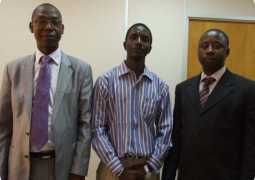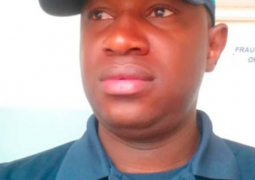Trial commenced Thursday of the false information case involving Mambanyick Njie, former Youth and Sports permanent secretary, at Banjul Magistrates’ Court before Principal Magistrate Taiwo Ade Alagbe.
The particulars of offence stated that Mambanyick Njie, on1 March 2012, in Banjul, whilst serving as permanent secretary for Youth and Sports, wrote a petition to the Office of the President stating that the executives of the ex-Gambia Football Association (GFA) were engaged in malpractices and never gave a thorough account of the impress given to them for international matches and therefore sought approval to dissolve the said GFA executive, an information he knew “to be false or does not believe to be true”.
Cadet Inspector Momodou Baldeh testified telling the court that he is a police officer attached to the Gambia fraud squad at the police headquarters in Banjul.
He said that in 2012, his office received a directive from the Office of the President to investigate the GFA executive regarding the petition written and signed by the accused person.
A panel was formed to look into the petition and to investigate the GFA allegations in the petition letter, he said, adding that at the end of the investigation, a report was sent to the Office of the President through the Inspector General of Police.
Designated as the first prosecution witness (PW1), officer Baldeh confirmed the said letter in court as the one the accused person wrote to the Office of the President.
However, the accused person raised an objection that he was acting on behalf of the institution at the time; therefore, the said letter should not be admissible in court.
“Your Worship, if you carefully look at the petition, you will see that the letterhead bears the department of Youth and Sports; not my personal letter,” he said.
In response, the prosecuting officer, Sergeant Manga, told the court that even though he acted on behalf of the institution, he was the one who signed it at that time as permanent secretary of Youth and Sports.
He said it was trite law that the admissibility of the documents was based on relevance under section (3) of the Evidence Act.
However, his objection was later overruled by the trial magistrate and the case continued.
PW1 further told the court that the panel made a final report, which if he saw he would be able to recognise because his signature was on it.
The accused person again raised an objection to the tendering of the investigation report too, but was later refused by the trial magistrate.
The report was later tendered, admitted and marked as exhibit.
The case was then adjourned till 21 and 22 November 2012.
Read Other Articles In Article (Archive)

FIU director promises to work with anti-money laundering journalists
Feb 24, 2014, 10:01 AM


